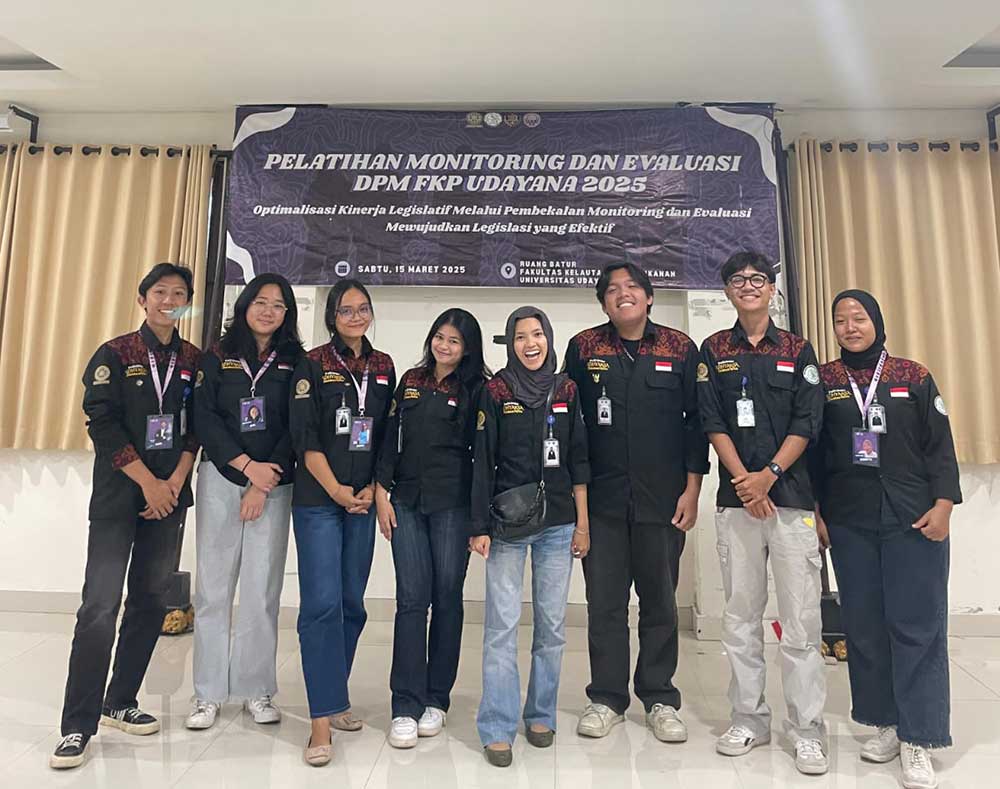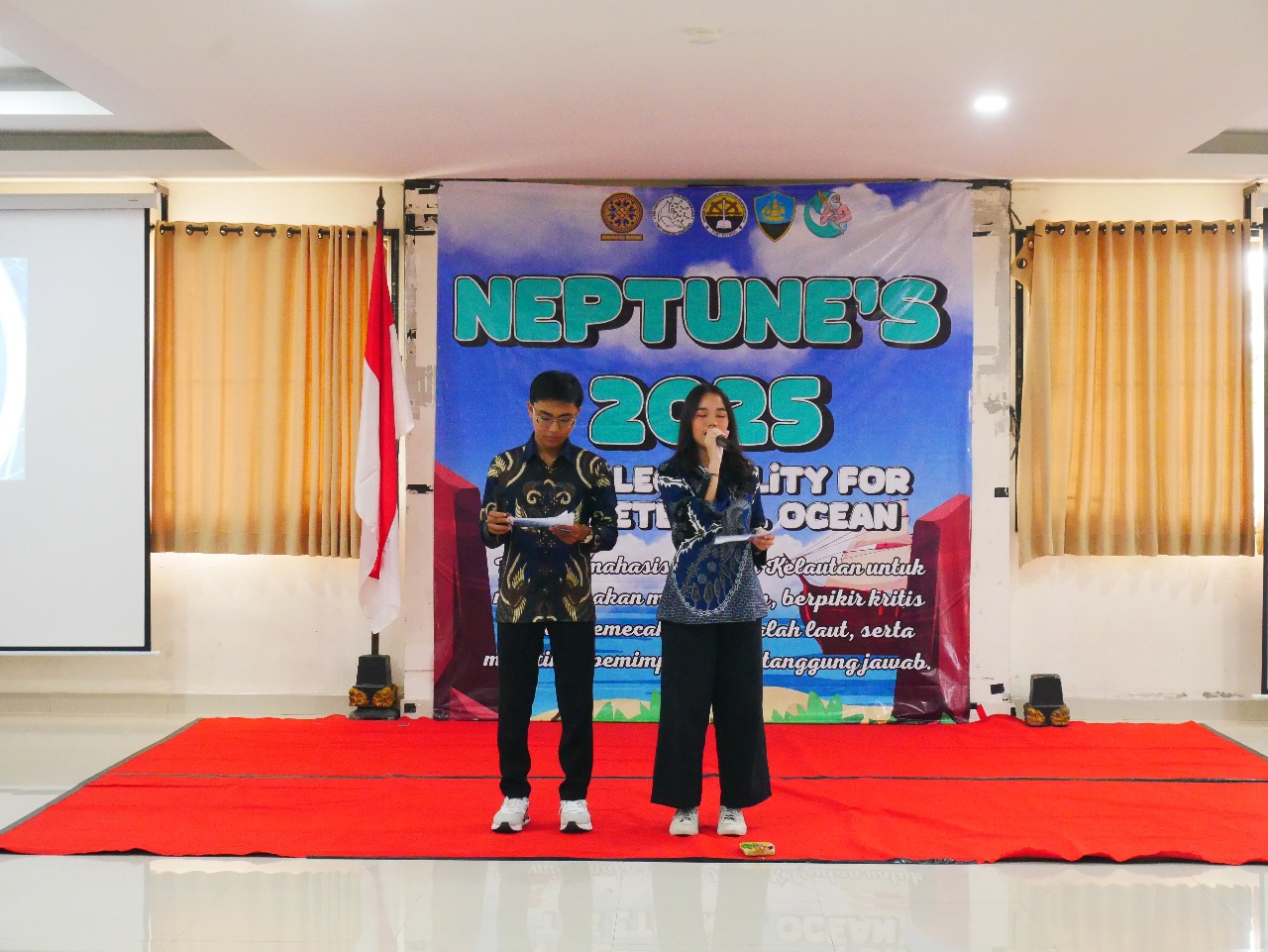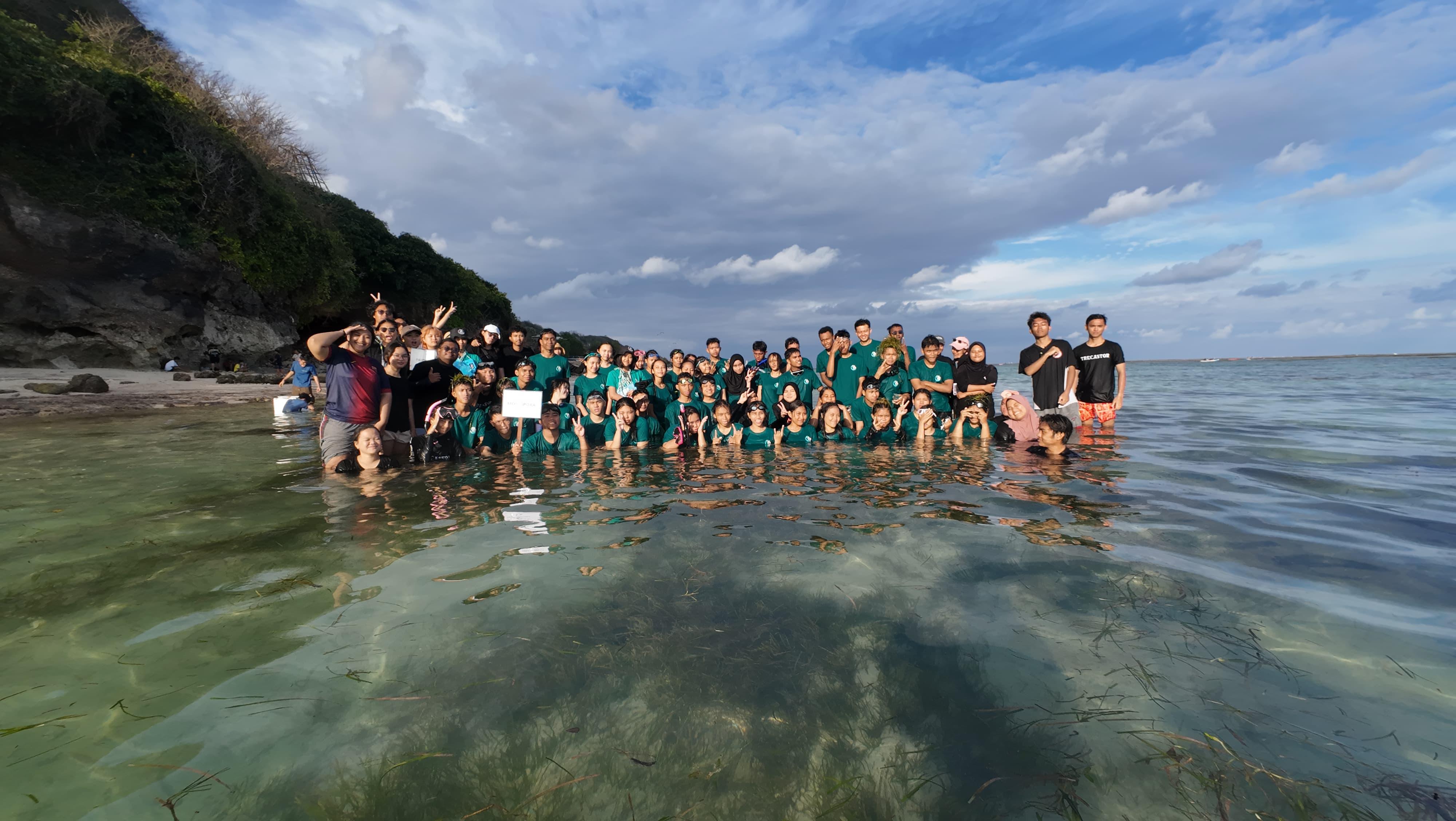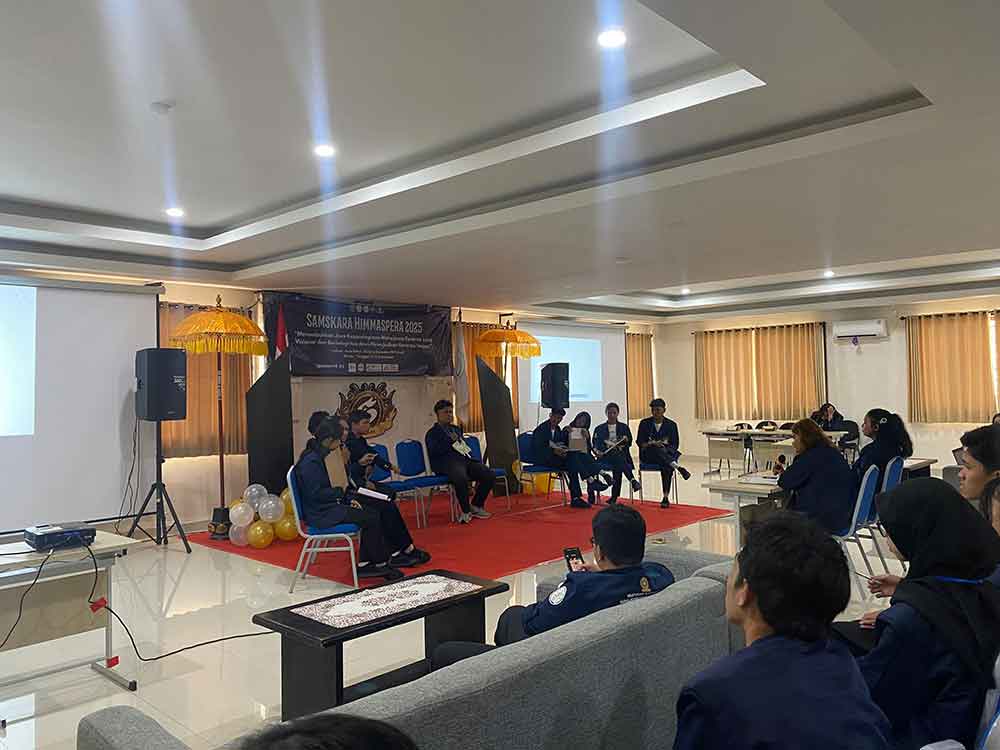“Optimizing Legislative Performance Through Monitoring and Evaluation Training to Achieve Effective Legislation” – A Part of the 2025 Monitoring and Evaluation Training Program
The Student Representative Council (DPM) once again held a series of events known as the Monitoring and Evaluation Training (Pelatihan Monev). This training took place on Saturday, March 15, 2025, in Batur Room, 4th Floor, Faculty of Marine and Fisheries, Udayana University. The objective of the training was to develop legislative members into individuals of integrity through strengthening their monitoring and evaluation (M&E) skills. The event was attended by all active legislative members of the Student Representative Council in 2025.
The program began with opening remarks from the Head of the Committee, Iqmal Beri Wiguna, who emphasized the importance of teamwork in the monitoring and evaluation process. In his address, he highlighted that as legislative members, their role is to serve as neutral mediators in every organizational program. The event was then officially opened by Mr. Putu Satya Pratama Atmaja, S.Kel., M.Si., the advisor to the Student Representative Council of the Faculty of Marine and Fisheries. In his speech, he expressed his hopes that participants would apply the knowledge gained to improve the quality of M&E within their organization.
The event continued with a presentation session moderated by Zhaleth Levenery Gavrily Ayezcca. The first speaker, Ni Luh Yudi Ayuningsih—a Management student and former Chair of the 2024 DPM PM—delivered material on Monitoring and Evaluation within a Group. She explained the fundamental concepts and techniques for conducting effective M&E as a team. The second presentation was delivered by Fauziah Choirunnisa Andani, a Marine Science student and former Chair of the Faculty’s 2024 DPM, who discussed Positioning Oneself as an Individual in the Monitoring Process. She stressed the importance of objectivity and professionalism in carrying out M&E tasks and how an evaluator must remain neutral and constructive.
After the presentations, participants were divided into four groups for a Case Study session. In this segment, participants were given organizational scenarios to analyze and were tasked with proposing solutions based on the M&E principles they had learned. The discussions were dynamic and engaging, with participants demonstrating critical and innovative thinking in solving the challenges presented.
The event received positive feedback from participants. One DPM member, Najwa, shared her thoughts:
“This event has been very beneficial in preparing us to carry out monitoring and evaluation tasks within our organization. It also helped shape us into more critical and responsible leaders.”
Similarly, Michael, the 2025 Chair of the Faculty’s DPM, remarked:
“This training provided highly valuable insights for all of us in enhancing the quality of our M&E efforts. Through the case study session, we were able to understand various challenges that may arise and discover appropriate solutions to fulfill our legislative responsibilities.”
The event concluded with a group photo session as a symbol of unity and commitment to continuous learning and development in monitoring and evaluation. With great enthusiasm, this activity is expected to be a stepping stone toward positive change and improved performance of legislative members within the Faculty of Marine and Fisheries.




UDAYANA UNIVERSITY